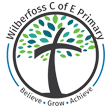Music
Music at Wilberfoss - The Big Picture!
At Wilberfoss, we want our children to develop a love of music. Through our music lessons, children become real musicians; learning to play an instrument, composing their own music, performing to a range of audiences and listening to and appreciating a diverse range of music (including music from different time periods, cultures and countries). Through provided opportunities as musicians, children will develop their self-confidence, creativity and a sense of achievement. Beyond our music lessons, singing is a big part of our school community, bringing us together in a collective voice.
Intent
In KS1 and KS2 we follow the National Curriculum programme of study using the online programme ‘Kapow’. Through this, children are able to explore a wide range of musical styles from different time periods and cultures. In the Foundation Stage, children have opportunities to access musical instruments and singing through provision areas.
The end point for all our children is to have the skills, knowledge and understanding necessary to prepare them for the music curriculum at Key Stage 3 as well as developing a love of music. Through the Sing Up scheme, children will learn about the inter-related dimensions of music, compose their own music, improvise and appraise music. All children also have opportunities to take part in group performances through our Christmas and Summer productions.
To give all children an equal opportunity for accessing music, Year 4, 5 and 6 have whole class ukulele lessons for a term which are taught by a teacher from the East Riding Music Service.
Implementation
The music curriculum ensures children sing, listen, play, perform and evaluate. This is embedded in the classroom activities, musical performances and the learning of instruments.
From the Foundation Stage up to Year 6, children are provided with opportunities to compose, improvise and perform. Children work collaboratively and are encouraged to evaluate their own performances and those of others enabling them to improve as musicians. Throughout our different units, children have the opportunity to appraise a wide variety of music and are encouraged to use accurate musical vocabulary to support their opinions.
In each unit of work, key vocabulary is shared with the children. This might include the inter-related dimensions of music which are the seven main building blocks for music (tempo, dynamics, pitch, duration, texture, timbre and structure), features of different genres of music, instrument names and note names.
At Wilberfoss, we also see the importance of developing a love of music and so provide a range of extra curricular activities. This includes Young Voices for Year 5 and 6, Big Sing for Year 3 and 4, KS2 choir and Sing Up Day. Sing Up Day is a yearly event which all of our children participate in. We learn a song which we sing together as a school and each class completes a range of musical activities throughout the day. Through the East Riding Music Service and private teachers, children can also have instrumental lessons in school including violin, flute, guitar and piano.
Impact
Throughout the year, each child in KS1 and 2 is assessed on their ability in singing and chanting, playing an instrument, composition and improvisation and listening and applying knowledge and understanding. This assessment is completed by each class teacher through observations in each lesson and an overall assessment in entered onto Insight. The subject lead will have an overview of the data to track the progress and attainment of the different year groups allowing analysis of strengths and areas of development to take place. To support these judgements, teachers often record short videos of children completing tasks in lessons which are then either stored in our music evidence file.
Children in the Foundation Stage are regularly assessed on their areas of learning through observations which are recorded on Tapestry. For music, assessments are under the heading ‘Expressive Art and Design’. This then informs the planning and provision areas are altered to suit the needs of the children.
Curriculum Progression Map for Music
music coverage grid new draft.pdf
 Wilberfoss C of E Primary School
Wilberfoss C of E Primary School